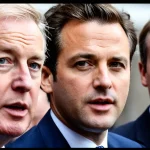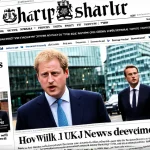Redefining British Identity in a Post-Brexit Era
In the wake of Brexit, British identity has undergone profound transformations, reflecting significant cultural shifts across the UK. Public discussions now frequently revolve around redefining what it means to be British in a post-Brexit society. This redefinition arises not only from political changes but also from evolving social attitudes and historical reinterpretations.
Brexit has had a deep influence on how individuals perceive themselves and their nation. Many people reconsidered their sense of belonging and national pride, leading to a reexamination of long-held beliefs about Britishness. This process includes critical reflections on the country’s colonial past, multicultural makeup, and future global role. The collective self-perception is increasingly complex, as younger generations and diverse communities contribute fresh narratives to the national dialogue.
Have you seen this : The best linux distros for beginners: your ultimate guide
Symbols and narratives representing nationhood are also evolving. Traditional emblems, such as the Union Jack or royal iconography, coexist with emerging symbols that emphasize inclusivity and local identities within the UK. These changes signal a shift toward a more nuanced, pluralistic understanding of British identity that captures the dynamic social landscape in the post-Brexit society. The nation is navigating a path between preserving heritage and embracing change, highlighting the ongoing cultural transitions reshaping the UK.
Evolving Attitudes Towards Immigration and Diversity
Since the immigration UK post-Brexit referendum, public sentiment surrounding immigration has undergone notable transformation. Initially marked by uncertainty and heightened debate, attitudes have gradually shifted toward a more nuanced understanding of the role immigration plays within British society. This change reflects growing awareness of the complex contributions of diverse communities to the UK’s social and economic fabric.
In parallel : How Will Recent UK News Developments Impact Global Relations?
Policies affecting multiculturalism have evolved in response to these shifts. Immigration regulations have been reexamined to balance border control with the necessity of embracing skilled workers, students, and refugees, ensuring that the UK remains competitive globally while maintaining social stability. Government initiatives increasingly focus on integration measures, seeking to harmonize respect for cultural diversity with the promotion of shared British values.
Personal experiences of those living in the UK’s multicultural environment highlight both challenges and successes. Many individuals and families describe enhanced opportunities for cultural exchange and community building, despite occasional tensions or misunderstandings. These lived experiences illustrate the ongoing adaptation within the post-Brexit society, where diversity is becoming both a social strength and a focal point for dialogue about identity.
In summary, the evolution in social attitudes towards immigration reflects the broader cultural shifts UK society is experiencing. Recognizing the importance of inclusive policies and addressing integration challenges remain central to fostering cohesion in a changing demographic landscape. This dynamic interplay shapes the continuing narrative of what it means to belong in a post-Brexit society marked by rich cultural diversity.
Resurgence of Nationalism and Regional Differences
Since Brexit, UK nationalism has gained renewed visibility, shaping post-Brexit political trends across the country. Nationalist rhetoric often emphasizes sovereignty and cultural distinctiveness, appealing to communities wary of external influence. This resurgence manifests in political parties and movements that prioritize national interest, sometimes at odds with broader UK unity.
Parallel to this, regional identity has strengthened, particularly in Scotland and Wales. Both nations have witnessed increased calls for greater autonomy or independence, fueled by a perception that their distinct cultures and political choices diverge from those of the UK government. The Scottish National Party, for example, has intensified its campaign emphasizing Scotland’s unique trajectory following Brexit.
Further complexity arises from differing perspectives between urban and rural areas. Urban centres, often more diverse and cosmopolitan, may embrace multiculturalism and internationalism, while rural regions sometimes exhibit more conservative tendencies, valuing traditional identity markers. This divergence highlights the layered nature of identity within the UK, as post-Brexit political trends interact with longstanding social and cultural differences.
Transformations in the UK Arts and Creative Landscape
The UK arts post-Brexit sector has experienced significant changes, particularly in funding mechanisms and international collaboration. With Brexit altering the UK’s relationship with the European Union, access to EU arts grants and mobility programs has diminished, compelling cultural institutions and artists to seek alternative funding sources. This shift challenges the sustainability of many projects, especially those reliant on transnational partnerships.
In response, UK arts organizations have adapted by expanding their networks beyond Europe, embracing global collaborations with artists and institutions from diverse regions. Such partnerships reflect an evolving approach to cultural production that is more geographically pluralistic, promoting new perspectives and enriching British creative outputs. Leading cultural institutions have prioritized fostering international exchanges that circumvent traditional EU frameworks while maintaining artistic vitality.
Contemporary British art, music, and literature increasingly explore themes related to identity, migration, and social change — topics that resonate deeply within the post-Brexit society. Artists use their work to interrogate notions of belonging, challenge political narratives, and highlight multicultural experiences. This thematic shift underscores a broader artistic engagement with the evolving dynamics of British identity, making the creative industries a platform for societal reflection.
Moreover, many artists and institutions publicly express concerns about the long-term impact of Brexit on creative freedom and cultural diversity. Despite obstacles, they remain resilient, often initiating innovative projects and community-based programs that strengthen cultural ties across Britain’s diverse regions. These efforts demonstrate the arts sector’s vital role in navigating and articulating the complexities of the cultural shifts UK is undergoing in the wake of Brexit.
Shifting Community Values and Social Cohesion
In the post-Brexit society, the landscape of community values UK has undergone significant evolution, reflecting both challenges and opportunities for rebuilding social cohesion. Brexit’s impact on society exposed latent divisions but also sparked a wave of grassroots initiatives aimed at bridging differences and fostering unity.
One key aspect of changing community values is the growing emphasis on inclusivity and mutual respect across diverse populations. Numerous local groups have emerged to promote dialogue among people of different backgrounds, addressing polarization resulting from Brexit debates. These efforts often focus on shared experiences and common goals to repair social trust and reinforce neighbourliness, which many perceive as waning amid political and cultural tensions.
The phenomenon of altered social trust post-Brexit raises important questions: How has Brexit influenced everyday relationships within communities? Research and anecdotal evidence suggest that while some areas experienced increased insularity, others saw strengthened bonds through active community engagement. Local initiatives tackling issues like integration, youth involvement, and cross-cultural events demonstrate tangible progress in enhancing social cohesion despite broader uncertainties.
Notable examples include community forums, intercultural workshops, and volunteer networks that encourage participation beyond ethnic or socioeconomic lines. These projects often rely on collaboration between civic organizations, local authorities, and residents, highlighting a shared commitment to navigating Brexit’s complex societal effects. Such initiatives reveal how evolving community values UK are now more geared toward resilience and reconciliation, contributing to a more inclusive post-Brexit society.











